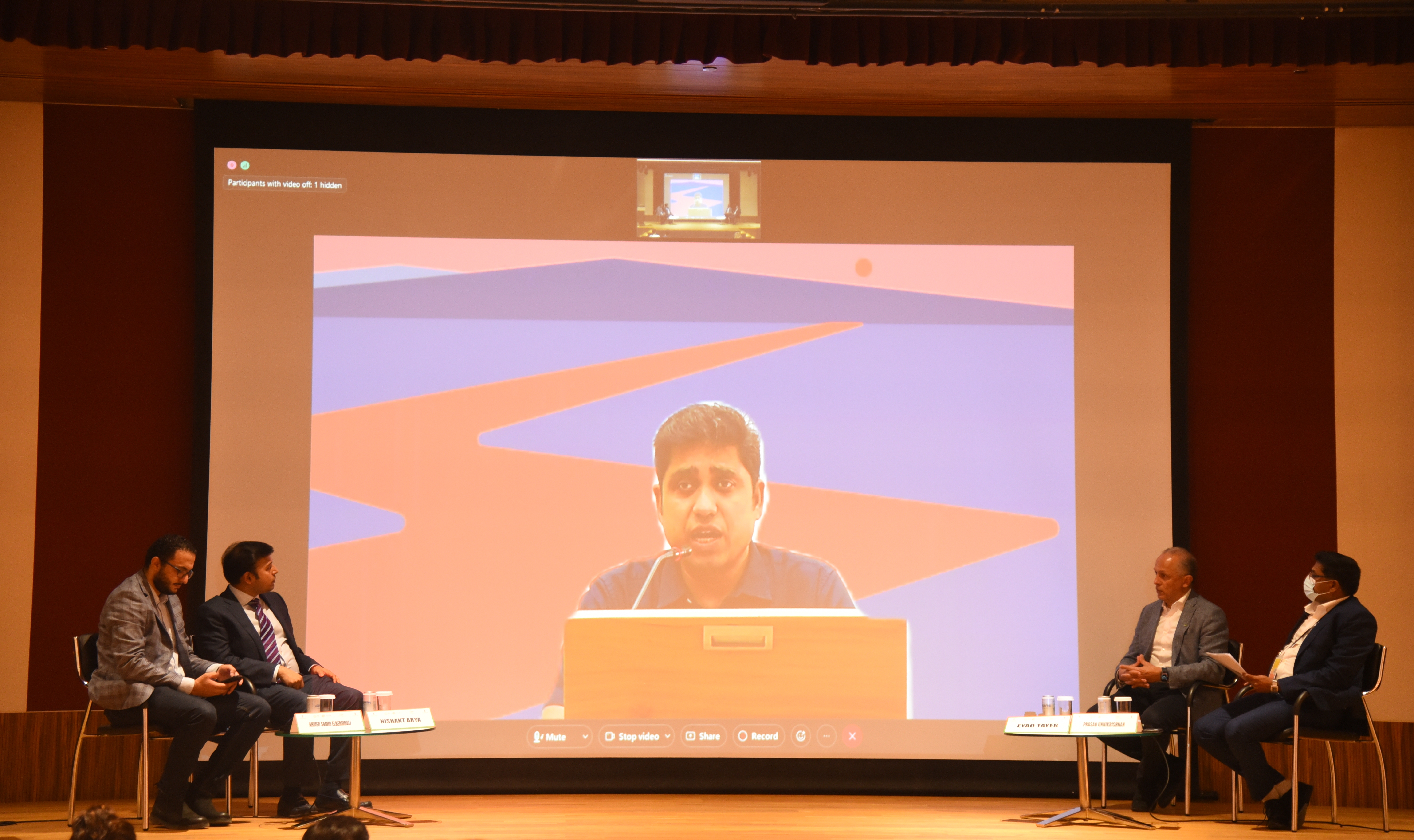Keeping in view the commitment made by the Government of India during the recent COP26 in Glasgow to achieve its climate action plan, electric vehicle (EV) sector is going to play a critical role in achieving the target. This was discussed by eminent industry leaders in a session on electric mobility during the ongoing ‘Urban and Rural Development Week’ at the India Pavilion, Expo 2020 Dubai.
As per industry reports, India’s electric vehicle (EV) market is estimated to be USD 8 billion opportunity by 2025, with two- and three-wheelers expected to drive higher electrification of the vehicles. Moreover, cumulative investment of approximately USD 180 billion in vehicle production and charging infrastructure would be required until 2030 to meet India’s electric vehicle (EV) ambitions.
Titled ‘Electric Mobility: Towards a Sustainable Future’, the session highlighted the benefits of EVs for daily commute and way forward for electric public transportation, repurposing infrastructure for future of mobility and adoption of global best practices.
The transport sector accounts for 18% of the total energy consumption in India which translates to approximately 94 million tonnes of oil equivalent (MTOE) energy. This makes it important to introduce alternative means of transport that complements India’s rising urbanization, economic growth, travel demand and country’s energy security. Electric mobility with innovative pricing, appropriate technology, and support infrastructure, is the viable alternative in addressing these challenges.
Mr Banchhanidhi Pani, Municipal Commissioner, Gujarat said, “Currently, 6.4% of India’s GDP is contributed by the transportation sector. In the coming years, India will also reach fossil fuel capacity. There is a higher emphasis on reducing carbon emissions. Therefore, we need to bring about a shift in public transportation with the use of electric mobility.”
“We are just starting with India’s EV Revolution. A number of states are coming up with EV policies and there is a growing awareness about the use of EVs. The driving cost of Electric vehicle is low; this includes the maintenance and operation of vehicles. There are other environmental benefits of EVs which will impact the nation’s climate action plan,” he added.
Mr. Ahmed Samir Elbermbali, MD, Clean Energy Business Council (CEBC) said that we need more investments into public transportation, especially the multi-modality model and we have to look at the whole transportation on the mobility sector in a very comprehensive way.
Mr Eyad Tayeb, MD, Init Innovation in Traffic Systems FZE said, “Electric Mobility is not an option anymore. The government has undertaken multiple initiatives to promote manufacturing and adoption of electric vehicles in the country. India has numerous opportunities for growth in the EV sector. We have already seen a rapid upgradation in production of electric vehicles, charging stations, battery storage and supporting tools in India, he added.
Mr. Nishant Arya, Vice Chairman, JBM Group and Chairman- Linde Wiemann Gmbh, Mr Eyad Tayeb, MD, Init Innovation in Traffic Systems FZE and Mr Prasad Unnikrishnan, Partner & COO, Govt. and Public Services, KPMG India also participated in the session.
The Urban & Rural Development Week will go on till 6th November.

